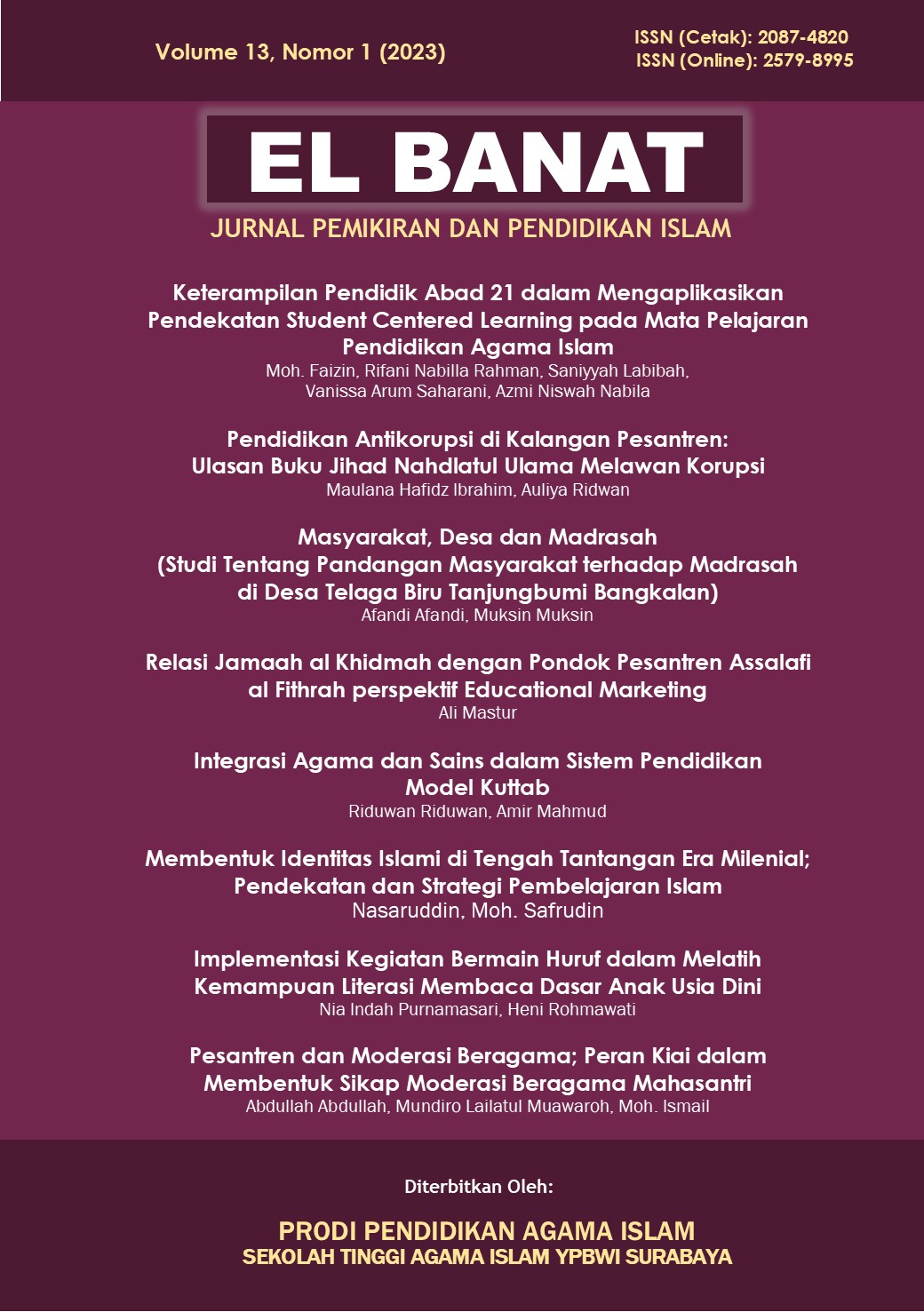Pendidikan Antikorupsi di Kalangan Pesantren: Ulasan Buku Jihad Nahdlatul Ulama Melawan Korupsi
Abstract
Anti-corruption education is an imperative that necessitates development within Indonesia, given the recent surge in instances of corruption ranging from the grassroots level to the highest echelons of the state. Islamic boarding schools, known as pesantren, hold significant potential in combating corruption within the country. In this context, Marzuki Wahid and his colleagues have formulated ideas encapsulated in the book "Jihad Nahdlatul Ulama Against Corruption." This research aims to analyze the perspectives on anti-corruption education within the pesantren community and to elucidate the contributions put forth in the aforementioned book. The employed methodology is a literature review, encompassing data collection, reading, note-taking, and analysis to derive conclusions. The analysis of the book reveals intriguing concepts that serve as a foundation for bolstering the role of pesantren in anti-corruption efforts. These concepts encompass the development of anti-corruption values, such as integrity, empathy, self-reliance, discipline, responsibility, hard work, simplicity, courage, and justice through pesantren education, aligned with the principles of tawassuth, tasamuh, tawazun, and amar ma'ruf nahi munkar. Thus, this approach holds the potential to reinforce the role of pesantren in eradicating corruption in Indonesia.Copyright (c) 2023 EL-BANAT: Jurnal Pemikiran dan Pendidikan Islam

This work is licensed under a Creative Commons Attribution-ShareAlike 4.0 International License.

















